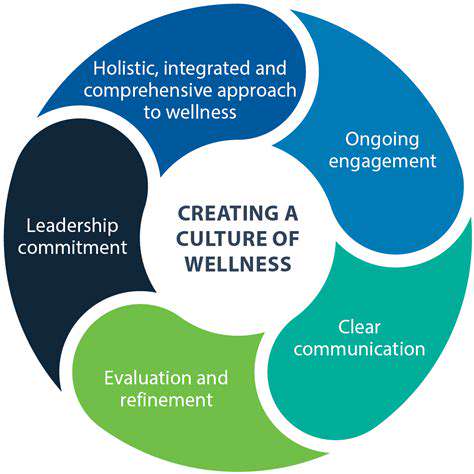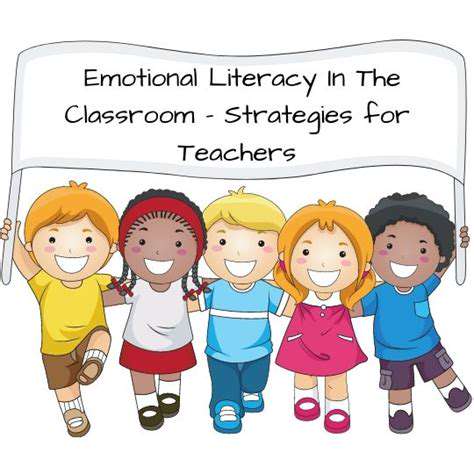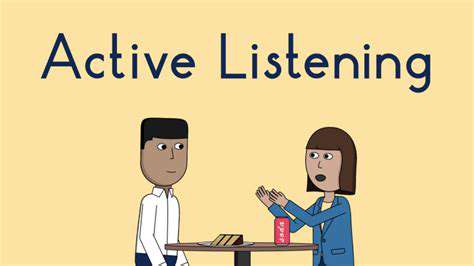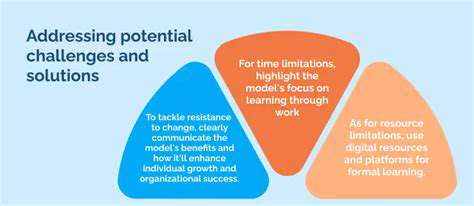Social Skills for Preschoolers: Helping Your Child Navigate Friendships and Group Play
Games and Activities to Enhance Social Development
Interactive Storytelling
Encouraging imaginative play through interactive storytelling is a fantastic way to boost preschoolers' social skills. By creating narratives together, children learn to take turns, share ideas, and understand different perspectives. This collaborative process fosters empathy and communication, allowing them to practice expressing their thoughts and feelings within a safe and supportive environment. It also builds a sense of shared experience and connection, vital for developing social bonds.
Providing props, puppets, or even just plain imagination can spark engaging stories. Let the children lead the narrative, and gently guide them to consider the feelings and motivations of the characters they create. This activity not only enhances social skills but also fosters creativity and language development, making it a truly beneficial experience for preschoolers.
Cooperative Play Games
Cooperative play games, such as building towers together or creating a collaborative artwork, are excellent for teaching preschoolers the importance of teamwork and communication. These activities demonstrate that individual contributions can lead to a shared outcome, encouraging a sense of collective responsibility and mutual support. Working together towards a common goal promotes problem-solving skills and the ability to navigate disagreements constructively.
Encourage children to discuss their ideas and strategies, and guide them through resolving conflicts in a fair and respectful manner. These experiences build crucial social skills that will serve them well in future interactions and relationships. The shared joy and sense of accomplishment derived from cooperative play strengthen social bonds and enhance their overall social-emotional development.
Dramatic Play Centers
Setting up a designated dramatic play area, complete with costumes, props, and various role-playing scenarios, is a highly effective way to promote social development in preschoolers. These activities allow children to explore different social roles, such as doctor, teacher, or shopkeeper, and practice interacting with others in these simulated environments. This imaginative play allows them to experiment with different communication styles and understand how their actions impact others, building empathy and perspective-taking skills.
Observing children engaged in dramatic play reveals valuable insights into their developing social understanding. Their interactions, communication patterns, and ability to negotiate roles provide a wealth of information for educators and parents to support their social-emotional growth. The role-playing nature of these activities makes learning fun and engaging, further reinforcing the importance of social skills.
Board Games and Puzzles
Introducing board games and puzzles, especially those designed for young children, provides opportunities for preschoolers to learn valuable social skills. Games often require taking turns, following rules, and cooperating with others. Through these activities, children develop a sense of fairness and learn to manage their emotions when they win or lose. They learn to navigate conflict and frustration constructively, and develop crucial communication skills while collaborating.
Simple games like matching puzzles or color sorting activities provide a foundation for early social interaction. The process of sharing, waiting their turn, and resolving disputes are essential life skills they learn in a playful environment. These activities provide opportunities for children to observe and interact with each other in a structured setting, reinforcing positive social behavior.
Group Art Projects
Encouraging group art projects, such as painting a mural or creating a collaborative sculpture, is an excellent way to foster social interaction and cooperation in preschoolers. These activities require children to work together, share materials, and contribute their ideas, promoting communication, negotiation, and compromise. The shared experience and sense of accomplishment encourage a sense of belonging and strengthen social bonds.
Group art projects also provide opportunities for children to learn about different perspectives and styles. They can observe how others approach the project and learn to appreciate diverse contributions. These experiences teach them valuable social skills and build confidence in their ability to work effectively as a team, setting the stage for future collaboration and problem-solving.
Outdoor Games and Activities
Outdoor games and activities offer a dynamic platform for preschoolers to develop crucial social skills. These engaging activities, like tag, hide-and-seek, or playing in a sandbox, naturally encourage turn-taking, sharing, and cooperation. The physical interaction and shared experiences build camaraderie and promote a sense of community among children.
Outdoor play provides a space for children to negotiate rules, resolve conflicts, and practice compromise in a dynamic environment. The freedom and open-ended nature of these activities allow children to develop their social skills in a more spontaneous and natural way, fostering a strong foundation for healthy social interactions.
Supporting Your Child's Social Development at Preschool
Understanding the Importance of Social Skills
Preschool is a crucial time for children to develop fundamental social skills. These skills, like cooperation, communication, and empathy, lay the foundation for future success in school, relationships, and life. Helping your child navigate social situations at preschool equips them with tools they'll use for years to come. It's more than just playing nicely; it's about fostering essential life skills that will benefit them in countless ways.
Early social development is intertwined with emotional intelligence. Understanding and managing emotions, recognizing others' feelings, and responding appropriately are all key components of strong social skills. These skills aren't innate; they need nurturing and practice.
Creating a Supportive Environment at Home
Before preschool, a supportive and nurturing environment at home is critical. Encourage conversations about feelings, both yours and your child's. Role-playing scenarios, such as sharing toys or resolving disagreements, can be a valuable way to equip your child with practical strategies for social interactions. Create opportunities for your child to interact with other children, whether through playdates or community events.
Modeling appropriate social behavior is also vital. Demonstrate empathy and respect in your interactions with others, and your child will learn by observing you. Open communication about social situations and how to handle different scenarios will help your child feel more confident and prepared.
Encouraging Positive Interactions at Preschool
Preschool provides a fantastic opportunity for your child to practice and refine their developing social skills. Observe how your child interacts with peers and teachers. Notice any patterns or challenges they may be facing. Open communication with the preschool staff is essential to understand your child's social dynamics within the classroom setting.
Encourage your child to participate in group activities and games. Emphasize the importance of taking turns, sharing, and resolving conflicts peacefully. Positive reinforcement for demonstrating these skills will significantly boost their confidence.
Addressing Social Challenges and Conflicts
Conflicts are inevitable parts of social development. It's important to teach your child how to resolve conflicts constructively, rather than simply avoiding them. Help them understand different perspectives, listen actively to others, and find solutions that work for everyone involved.
Don't shy away from addressing challenging behaviors. Talk to your child about their actions and their impact on others. Focus on teaching strategies for managing emotions and expressing needs effectively, rather than simply punishing the behavior.
Promoting Empathy and Perspective-Taking
Empathy, the ability to understand and share the feelings of another, is a cornerstone of strong social skills. Engage in activities that promote perspective-taking, such as reading stories with diverse characters or discussing different viewpoints on a topic. Encourage your child to consider how their actions affect others, fostering a sense of social responsibility.
Ask questions that encourage your child to think about how others might feel in various situations. This process helps them develop emotional intelligence and navigate social interactions more effectively.
Fostering Communication Skills
Clear and effective communication is crucial for positive social interactions. Encourage your child to express their needs and feelings verbally. Provide opportunities for them to practice communicating with peers, teachers, and other adults.
Active listening is also a vital component of communication. Help your child understand the importance of paying attention to what others are saying and responding thoughtfully. This is a skill that will serve them well throughout their lives.
Recognizing and Celebrating Milestones
Throughout the preschool years, your child will achieve various social milestones. Acknowledge and celebrate their progress, no matter how small. Positive reinforcement will encourage continued growth and development. Recognize the effort they put into interacting with others and building relationships. Celebrate these successes to boost their confidence and motivation.
Remember, every child develops at their own pace. Celebrate the unique journey of your child's social growth and be patient and supportive throughout the process.











